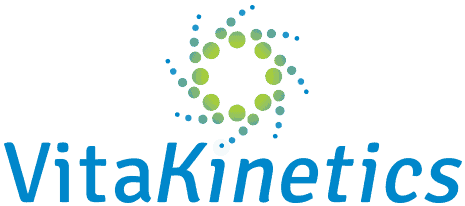Vitamin(s), a noun, is defined as a group of organic compounds which are essential (as we cannot synthesize them without ingesting them nor live without them) for normal growth. However, in North America, a vitamin is considered a pill containing a specified amount of a particular vitamin or vitamins. This definition is per the google dictionary.
There are 13 essential vitamins your body needs for growth (including healing) and health. There are nine water soluble vitamins that are excreted by your kidneys in your urine:
-
B Vitamins (Thiamine (B1), riboflavin (B2), niacin (B3), pantothenic acid (B5), pyroxidine (B6), biotin (B7), folate (B9) and cobalamin (B12)
There are four fat soluble vitamins that are stored in your fat:
-
Vitamin A
-
Vitamin D (requires sunshine to produce D3 naturally from cholesterol in your blood, plant food sources provide D2)
-
Vitamin E
-
Vitamin K
Food sources for the above vitamins are below:
Fat-soluble vitamins:
-
Vitamin A: Carrots, sweet potatoes, broccoli, spinach, apricots, cantaloupe, liver, egg yolks and fortified milk
-
Vitamin D: Eggs, and fatty fish such as sockeye salmon, mackerel, sardines, mushrooms (D2) and grass-fed, fortified dairy, such as milk and yogurt
-
Vitamin E: Spinach, almonds, sunflower seeds, avocados, shrimp, rainbow trout, olive oil, broccoli, butternut squash
-
Vitamin K: Dark leafy greens, scallions, Brussels sprouts, broccoli, asparagus, cabbage
Water-soluble vitamins:
-
Vitamin C: Citrus fruits, bell peppers, guavas, dark and leafy green vegetables, kiwi, broccoli, and strawberries
-
Vitamin B12: Meat, fish, shellfish, poultry, eggs, and dairy products
-
Vitamin B9 (folate/folic acid): Beans, lentils, spinach, asparagus, lettuce, and avocado, broccoli, tropical fruits, and oranges
-
Vitamin B3 (niacin): Lean meats, poultry, fish, organ meats, peanuts and peanut butter
-
Vitamin B6 (pyridoxine): poultry, fish, soybeans, nuts, peas and bananas
The foundation of VitaKinetics is to eat well to provide your body with the natural occurring vitamins (and minerals) in whole foods. For example, Vitamin B-12 is a critical component of recovery in it’s role in normal function of the nervous system (including brain), formation of red blood cells, helps to create and regulate DNA, cellular regulation of metabolism, the synthesis of fatty acids, energy production, and detoxification. It is naturally occurring in animal proteins primarily. VitaKinetics Recovery Blend recommends taking with whole fruits, vegetables and sources of animal protein in order to get a complete vitamin and mineral profile. Veganism during phases of healing and recovery may be problematic because of a deficiency of Vitamin B-12 and must be done carefully with a B-12 vitamin supplement. This leads to the myth #1
Myth 1: People can get all the vitamins they need from a healthy diet
While this is a foundational principle of a VitaKinetics lifestyle, the term “healthy diet” varies from person to person. If healthy to you is a vegan diet, then there is the potential of a Vitamin B12 deficiency, which is dangerous for growing children. Or even a healthy diet including foods with Vitamin B12, but a lack of sunshine will lead to a Vitamin D3 deficiency. If your version of healthy diet includes heavy refined sugar food stuffs despite fruits, vegetables and animal protein, then your vitamin and mineral needs actually increase to process and manage refined sugar.
Additionally, stressful situations (including life situations like parenting, arguments, injuries, intense fitness routines, sleep deprivation), your vitamin and mineral demands increase beyond what can be consumed by food. For example, one orange contains 50 mg of Vitamin C. In order to reach a therapeutic dose of Vitamin C for cases of reducing risk of chronic pain, one would need to eat at least 10 oranges. While the orange provides more than Vitamin C for health benefits that we may not be able to quantify or measure, in a specific situation, supplementation of Vitamin C makes sense.
Myth 2: All vitamins are safe.
This depends. If you have kidney failure, than taking too many water soluble vitamins becomes a problem. In the case of fat soluble vitamins like D3 that are not excreted, it can become toxic over time if you are not monitoring your blood levels. The dosage in our blend is a safe level for pain reduction, gut healing and for maintenance of blood levels and is not likely to increase your blood levels dangerously, if at all.
Additionally, supplements are not FDA regulated as we discussed before, so quality and sourcing of your vitamins matters.
Myth 3: Taking a vitamin can make up for poor diet and lifestyle choices and prevent disease.
There is no magic pill or vitamin that can compensate for poor choices or prevent disease. Quality and targeted supplementation can complement a healthy lifestyle and even potentially reduce risk of some conditions, but you can’t prevent disease or out run poor lifestyle choices. In fact, at VitaKinetics, our founder sought to disprove the need for supplements thinking only healthy lifestyle of nutrition, movement, sleep and connection were needed. In fact, specific supplementation in specific circumstances (like healing and pain reduction) may be helpful and possibly safer than some prescription and over the counter pharmaceutical options. If used as a complement to a healthy lifestyle, targeted supplements may reduce symptoms of a condition, but not cure or prevent disease. We have to be careful with the word choices here.
Myth 4: Supplements don’t interact with pharmaceutical medications.
Unfortunately, some vitamins do actually interact with pharmaceuticals either to potentiate or reduce their effects. Vitamin K is especially a problematic if you are taking blood thinners. Always discuss with your doctor about supplements you are taking if regular pharmaceuticals are a part of your life. More often than not, it is fine, but it’s always good to have an open dialogue with your doctor.
Here at VitaKinetics, we strive to provide supplements that have an optimal safety profile both in dosing, ingredients and production. However, our blends are not designed to treat or prevent any medical disease nor replace standard medical care.
Supplements and vitamins can be a powerful complement to a healthy and active lifestyle including whole sources of fruit, vegetable and animal protein; salted to taste, fresh water, 8+ hours of sleep, exercise in the sunshine without burning and connect to the earth and your tribe.
If you have questions, don’t hesitate to discuss with your health care provider.
Remove. Replace. Restore.
Remove the idea that a supplement is a magical pill that allows you to disregard poor lifestyle choices or ignoring your body’s messages.
Replace with quality supplements to super charge your healthy lifestyle.
Restore the vitality and the natural super power healing process within you.
Eat Well. Move Well. Sleep Well. Connect Well. Supplement Well.

